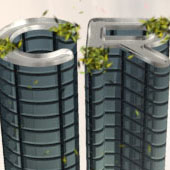
3D Skyscraper Text Effect in Photoshop CS5 – Part
This tutorial will explain how to create a nice 3D skyscraper text effect in Photoshop CS5, and will cover a couple of basic 3D concepts in the Photoshop 3D environment.
This part (Part 1) will explain how to create the basic 3D scene, apply the different needed materials, and adjust the lights for rendering. The next part (Part 2), will explain the remaining steps needed to get the final result.
The Final Result:
Notes:
* the software used in this tutorial is Adobe Photoshop CS5 Extended
* the size of the final result image is 1024 * 768
* you might want to check the Basix Page to see some useful topics on dealing with Photoshop basics, such as loading palettes and some shortcuts.
* The tutorial will explain the basic steps, but won’t get into the details, as the details are already covered in the previous 3D tutorials. But feel free to ask about any unclear steps or concepts.
Resources:
* Enabling OpenGL
The Repoussé will not work unless OpenGL is enabled. So go to Edit -> Preferences -> Performance, and make sure Enable OpenGL Drawing (under GPU Settings) is checked.
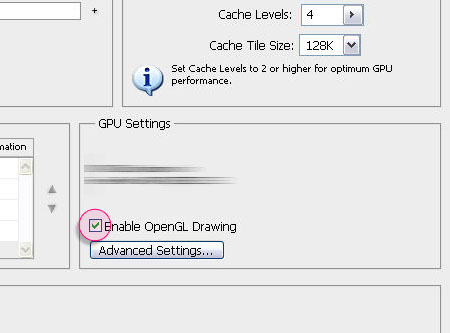
Also, go to Edit -> Preferences -> 3D, and make sure OpenGL (under Interactive Rendering) is enabled.
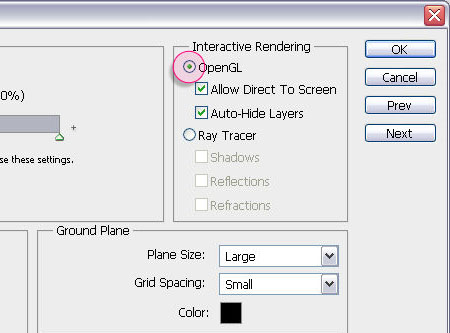
Step 1:
- Start with a Black Background, and create your text in White. The font used is Geometry Soft Pro, the size is 150 px (you’ll be able to scale the 3D text anytime though), set the Tracking value to 25 to leave more space between the letters, and click the All Caps button.
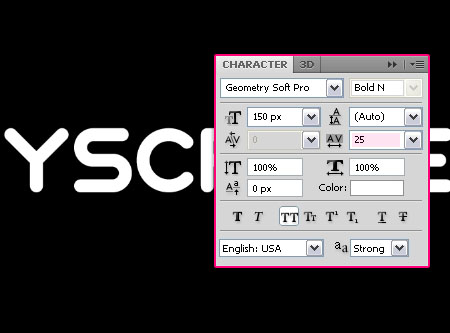
- Go to 3D -> Repoussé -> Text Layer.
A dialog box will appear telling you that this will rasterize the type layer, and you will no longer be able to modify your text. If you are sure you don’t need to modify your text, click yes and continue.
In the Repoussé dialog box, set the Depth to 5.5 or any other value you like depending on the length of extrusion you want. Change the Scale to 0.8, the Texture to Tile, and check Shear.
We are also going to add some Bevel to the Front side, so change the Height to 10, the Width to 7, and choose Cone for the Contour.
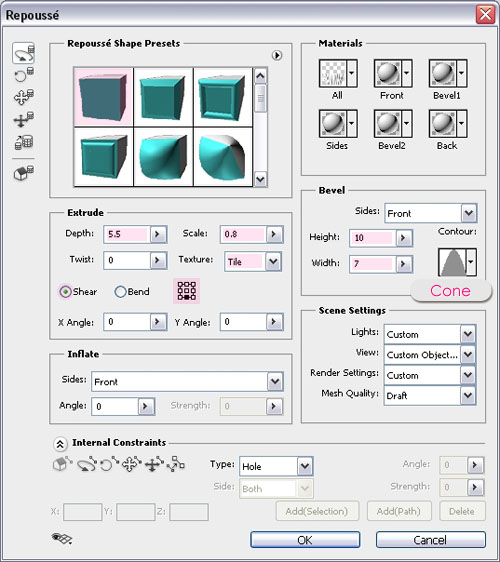
- Use the 3D Object tools and Camera tools to resize and position your 3D text as shown below.
(Read more about the 3D Axis and 3D object and camera tools).
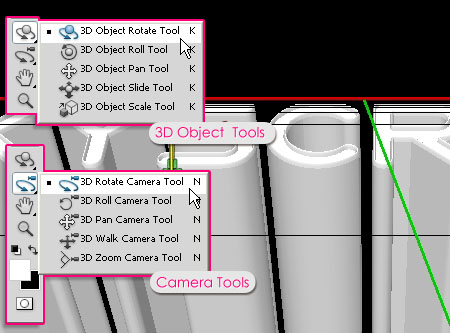
Step 2:
- Time to create the patterns we are going to use for texturing. Open a new 50 x 50 px document with a Transparent Background. Create 2 lines, each one 2 px width, as shown below.
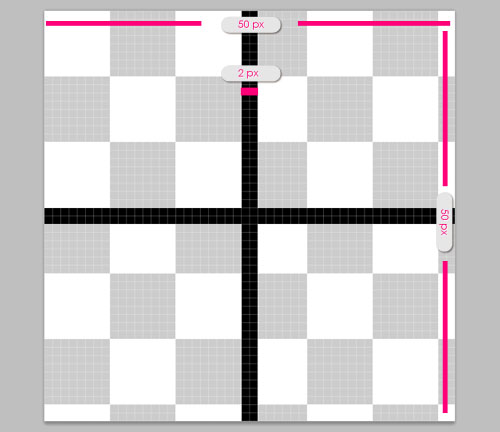
- Make sure the Background is transparent, and go to Edit -> Define Pattern, and type Diffuse in the Name field.
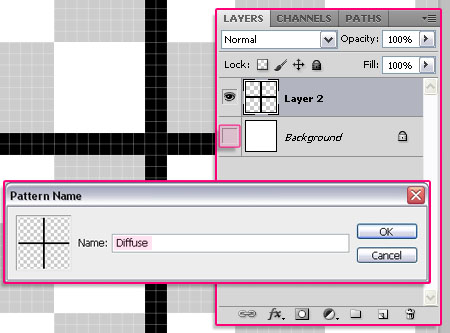
- Create a new layer, fill it with Black, then create the pattern shown below:
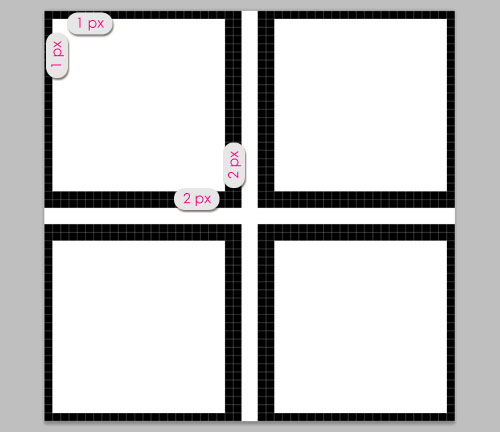
- Once you created the pattern, create another new layer on top of it, and fill it with White.
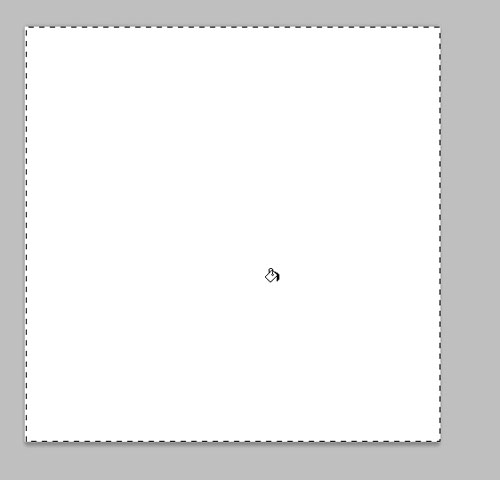
- Press Ctrl + T and move the white fill to one of the corners so that it covers the white part below it only as shown below. Press Enter to confirm.
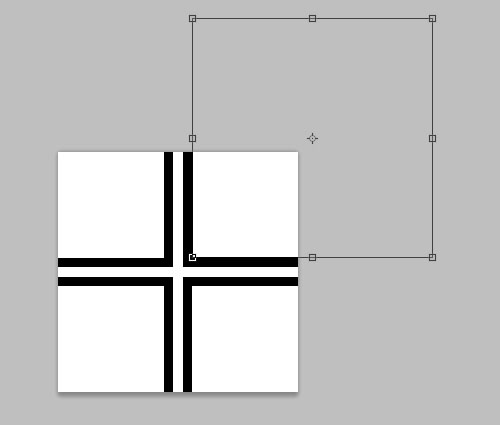
- Double click th White fill layer to apply an Inner Shadow, just change the Distance value to 0.
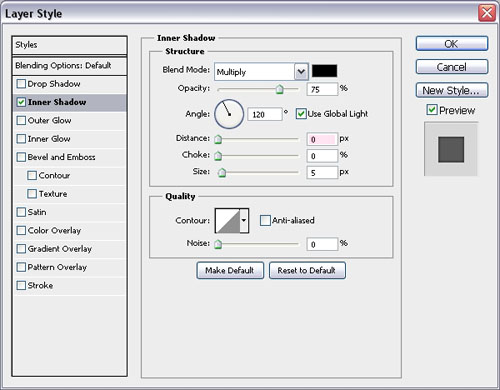
- This should apply a soft shadow on the inner corner.
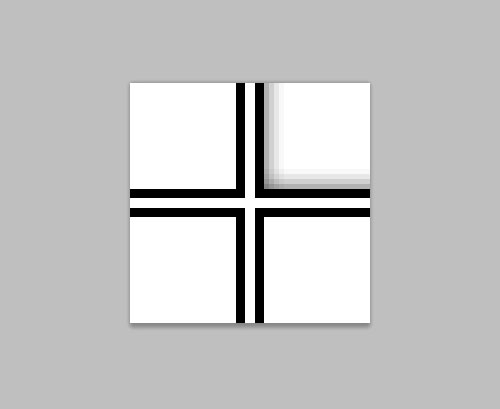
- Repeat that for the remaining corners, (you might as well duplicate the layer and move it around over each corner), then again go to Edit -> Define Pattern, and type Bump in the Name field this time.
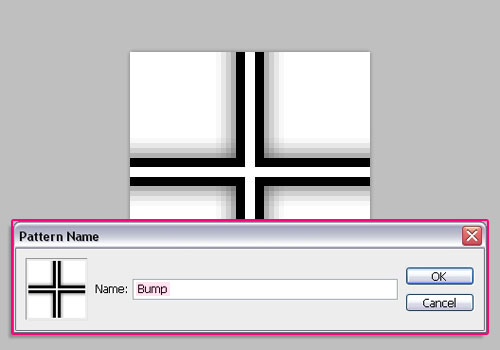
Step 3:
- Back to the original document, open the 3D panel (Window -> 3D), and select the Extrusion Material. Remove the Diffuse texture.
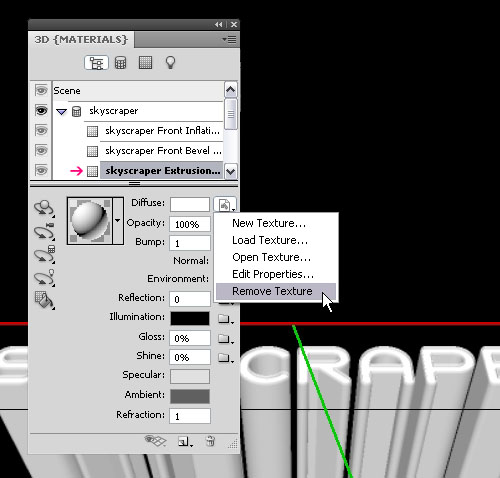
- Now click New Texture to add one.
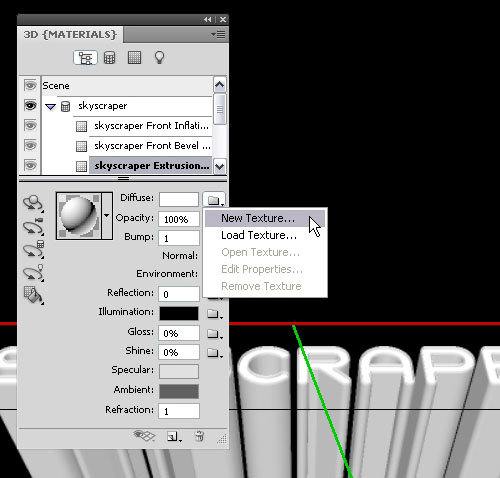
- Type in 750 for both the Width and Height values.
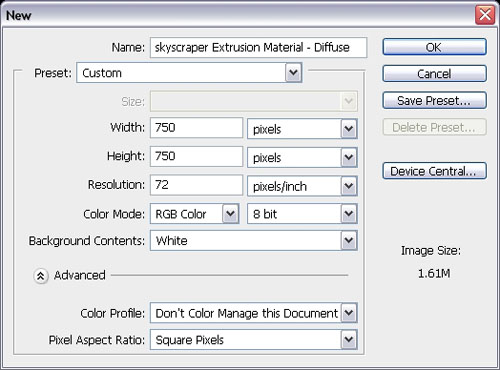
- Click Open Texture to modify it.
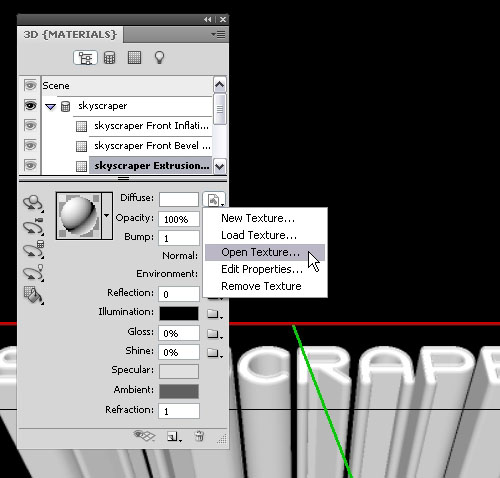
- Create a new layer and make the Background invisible (click the eye icon next to it), and fill the new layer with the Diffuse pattern.
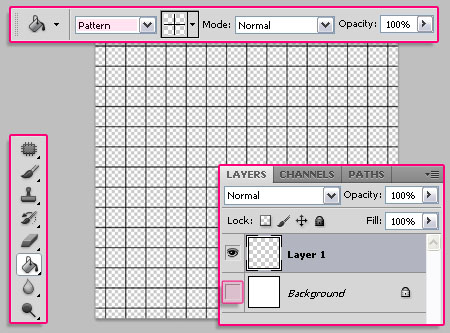
- Double click the layer and add a 2 px Stroke to make the pattern a bit thicker.
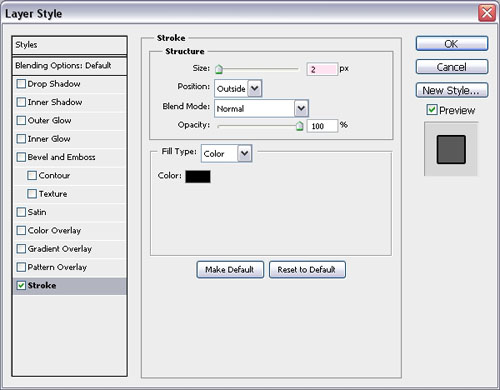
- Save your work and close the texture file.
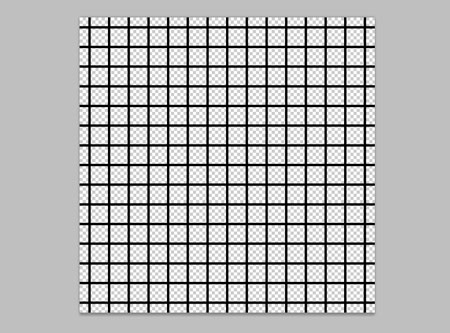
- Back to the original document, change the Diffuse color to #5d727e.
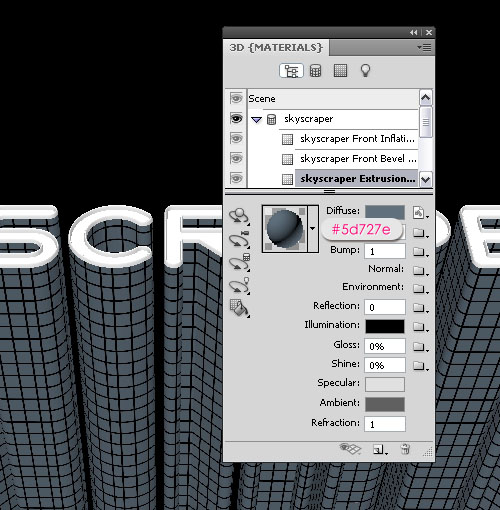
- Click Edit Properties to modify the scaling of the pattern.
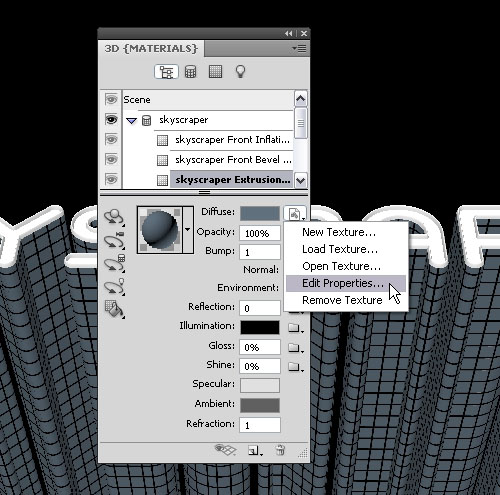
- You can play around with the values to see how the texture changes, or you can use the values shown below to get the same result in this tutorial.
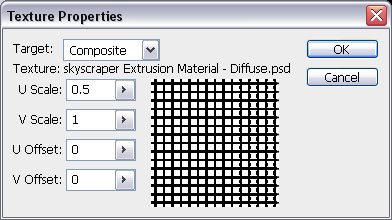
- You can see how the values changed the texture without the need to modify it.
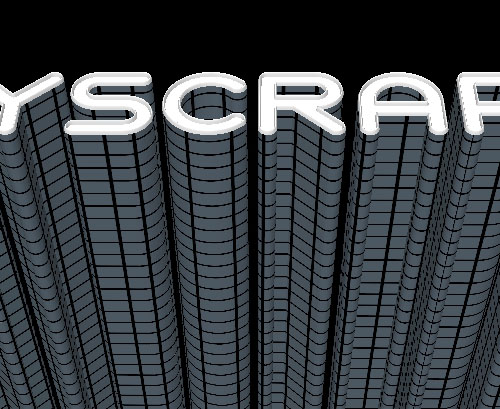
Step 4:
- Create a new texture for the Bump the same way you did for the Diffuse, and open it to modify it.
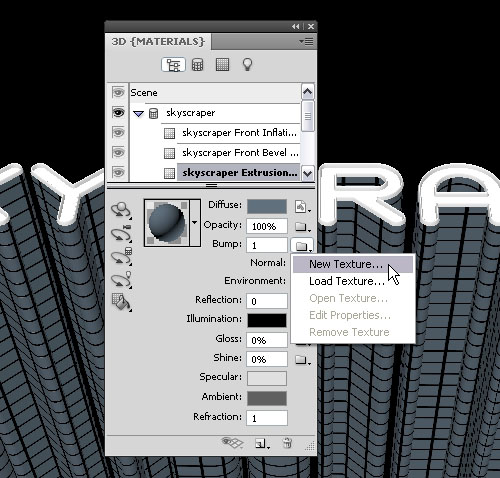
- Fill the texture with the Bump pattern, save and close the file.
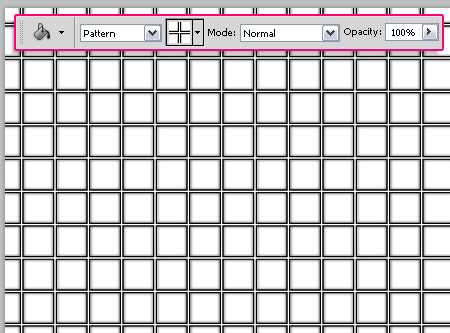
- Change the Properties so that they have the same values as the Diffuse texture. Change the Bump value to 10. You can see now how the Bump adds more depth to the texture.
Also, change the Reflection to 30, the Gloss to 20%, and the Shine to 50%. This will add the Glossy look to the extrusion.
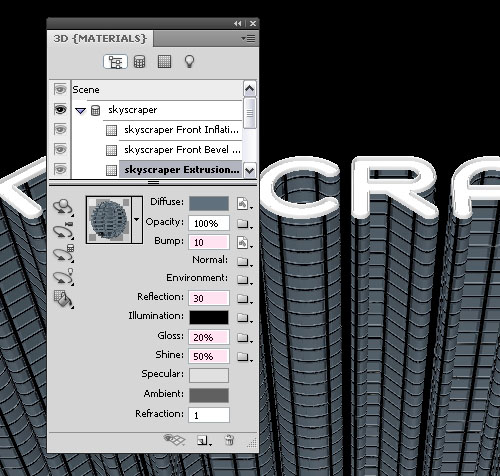
- Now select the Front Inflation Material to modify its settings. Change the Diffuse color to #b4b4b4, the Reflection to 20, the Gloss to 80%, and the Shine to 50%.
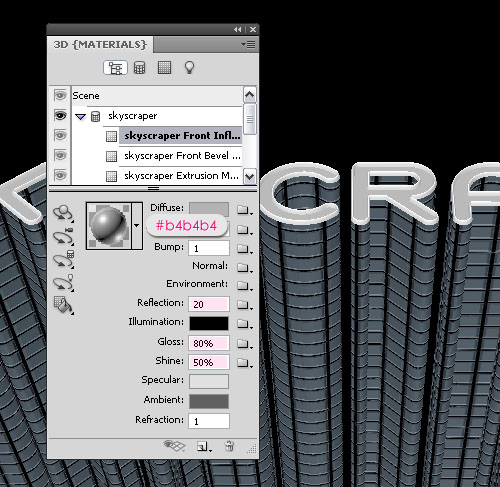
Step 5:
- Finally, select the Front Bevel Material, and create a new Diffuse texture that is 1024 x 768 px. Open the texture to edit it.
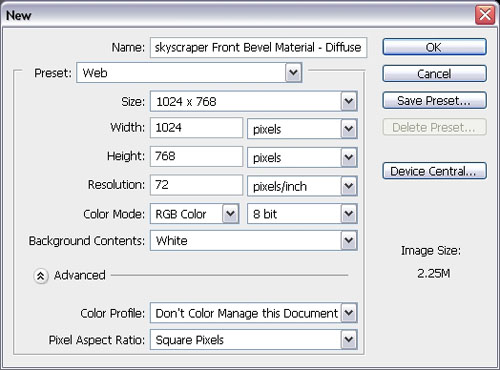
- Set the Foreground and Background colors to Black and White, then go to Filter -> Render -> Clouds.
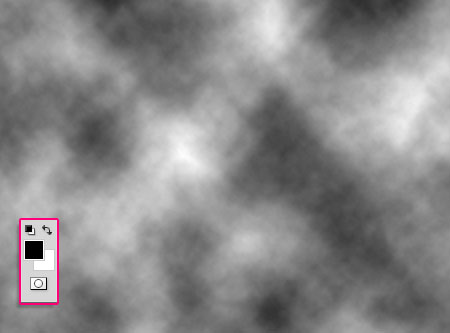
- Go to Filter -> Artistic -> Watercolor, and change the values as shown below:
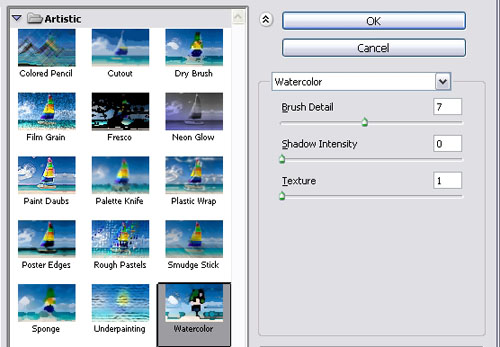
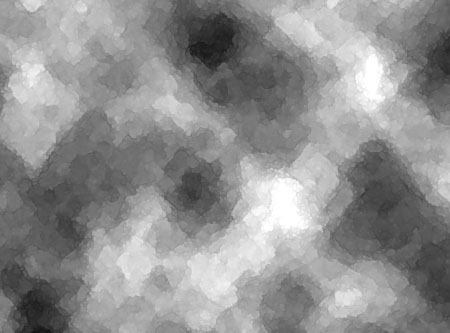
- Go to Filter -> Sketch -> Chrome, and change the values as shown below too:
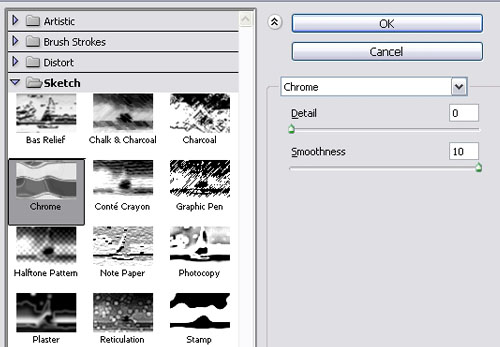
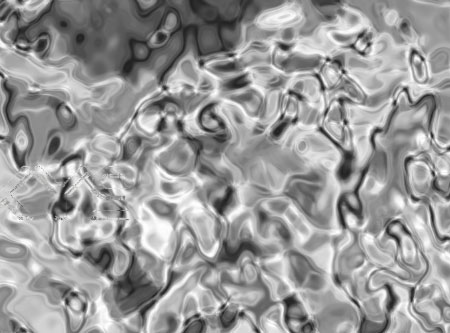
- Save the work and go back to the original document. Change the Reflection to 90, the Gloss to 80%, and the Shine to 60%.
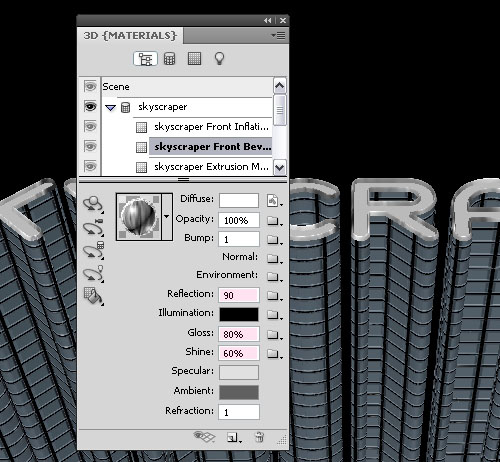
That’s it for the texturing and materials part!
Step 6:
- Select the Infinite Light 1, and change its color to #ebe5d5.
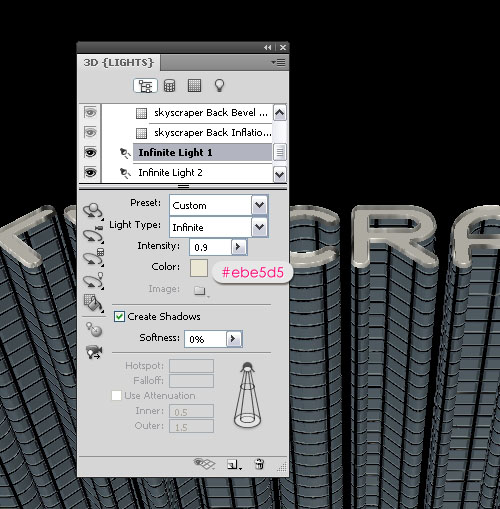
- Select the Infinite Light 3, and change the Light Type to Spot.
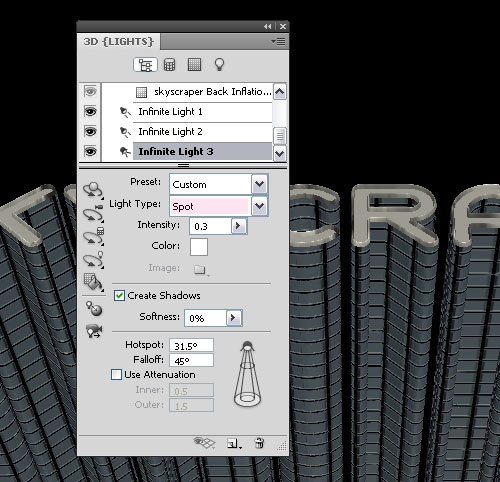
- Finally, select Scene at the top of the 3D panel, and choose Ray Traced Final from the Quality drop down menu.
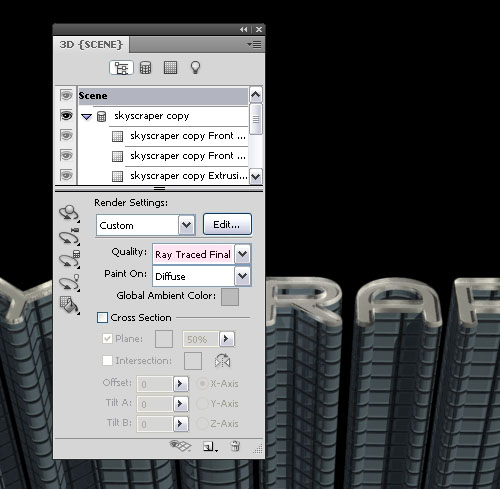
- Save your work after the rendering is finished (this might take a couple of hou
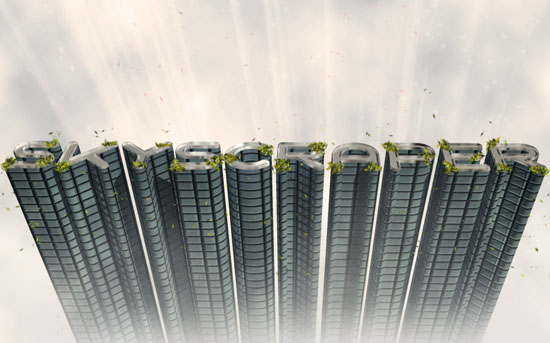
Comments
Post a Comment